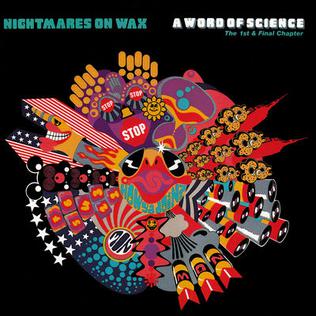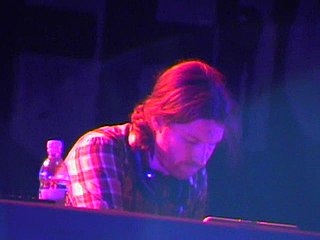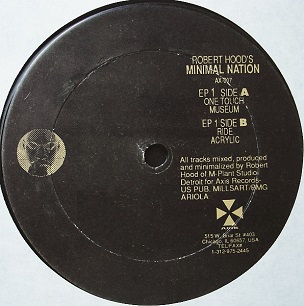Detroit techno is a type of techno music that generally includes the first techno productions by Detroit-based artists during the 1980s and early 1990s. Prominent Detroit techno artists include Juan Atkins, Eddie Fowlkes, Derrick May, Jeff Mills, Kevin Saunderson, Blake Baxter, Drexciya and Mike Banks.

Juan Atkins, also known as Model 500 and Infiniti, is an American record producer and DJ from Detroit, Michigan. Mixmag has described him as "the original pioneer of Detroit techno." He has been a member of The Belleville Three, Cybotron, and Borderland.

Carl Craig is an American electronic music producer and DJ from Detroit, Michigan. He is known as a leading figure in the second wave of Detroit techno artists during the late 1980s and early 1990s. Pitchfork described him as a "techno pioneer." He is the founder of the record label Planet E Communications.

Underground Resistance are a musical collective from Detroit, Michigan. Producing primarily Detroit techno since 1990 with a grungy four-track musical aesthetic, they are also renowned for their militant political and anti-corporate ethos.
Inner City is an American electronic music group that formed in Detroit, Michigan, in 1987. The group was originally composed of the record producer and composer Kevin Saunderson and the Chicago, Illinois, vocalist Paris Grey. Saunderson is renowned as one of the Belleville Three—along with Juan Atkins and Derrick May—high school friends who later originated the Detroit techno sound. In February 2018, Billboard magazine ranked them as the 69th most successful dance artists of all-time.
Minimal techno is a minimalist subgenre of techno music. It is characterized by a stripped-down aesthetic that exploits the use of repetition and understated development. Minimal techno is thought to have been originally developed in the early 1990s by Detroit-based producers Robert Hood and Daniel Bell. By the early 2000s the term 'minimal' generally described a style of techno that was popularized in Germany by labels such as Kompakt, Perlon, and Richie Hawtin's M-nus, among others.

Kenny Dixon Jr., better known by his stage name Moodymann, is an American musician based in Detroit, Michigan. He is the owner of the record labels Mahogani Music and KDJ Records. He is a member of 3 Chairs.

"Poison" is a song by English electronic music group the Prodigy, released on 6 March 1995 as the fourth and final single from their second studio album, Music for the Jilted Generation (1994). Maxim Reality sings on this track.

Pure Moods was the first United States release of a series of compilation albums of new-age music released by Virgin Records. The original was titled Moods – A contemporary Soundtrack and released in the UK in 1991. This was followed by Moods 2 in 1992. The series focuses on the genres of new-age, ambient, world music, and to a lesser extent, downtempo, trip-hop and smooth jazz. Several artists are featured regularly throughout the series such as Massive Attack, Moby, Delerium, Enigma, Enya, Adiemus, Sacred Spirit and Yanni.

Robert Hood is an American electronic music producer and DJ. He is a founding member of group Underground Resistance as a 'Minister Of Information' with Mad Mike Banks and Jeff Mills. He is often considered to be one of the founders of minimal techno. In 1994, Hood founded the minimal techno label M-Plant in Detroit.

Ginger is the debut studio album by Dutch electronic music producer Speedy J. Released via a joint deal between Plus 8 and Warp in September 1993, the album was the sixth release in Warp's Artificial Intelligence series, which focused on "electronic listening music" by different artists. It peaked at number 68 on the UK Albums Chart and remains Speedy J's most successful album there.

A Word of Science is the debut studio album by British electronic producers Nightmares on Wax. Released by Warp Records in September 1991, it is the act's only album as a group before it became a solo vehicle for George Evelyn. Evelyn nonetheless recorded and produced the album alone, incorporating samples and elements from demo tapes he made in the late 1980s. Although Nightmares on Wax debuted with two well-received techno singles in 1989-1990, A Word of Science is eclectic and largely moves the act towards a more mellow style influenced by funk, soul and hip hop, while still incorporating techno and house styles.

Richard David James, best known by the stage name Aphex Twin, is a British musician. He is best known for his idiosyncratic work in electronic styles such as techno and ambient music in the 1990s, and has also been associated with the electronic subgenre known as intelligent dance music. In 2001, Guardian journalist Paul Lester called James "the most inventive and influential figure in contemporary electronic music".
Techno is a genre of electronic dance music (EDM) that is characterized by a repetitive four on the floor beat which is generally produced for use in a continuous DJ set. The central rhythm is often in common time (4/4), while the tempo typically varies between 120 and 150 beats per minute (bpm). Artists may use electronic instruments such as drum machines, sequencers, and synthesizers, as well as digital audio workstations. Drum machines from the 1980s such as Roland's TR-808 and TR-909 are highly prized, and software emulations of such retro instruments are popular.

Sounds from the Ground (SFTG) is an English electronic music duo formed in 1995. Both members Nick Woolfson and Elliot Jones met through their involvement with the underground music scene in London. Their style has been described as ambient dub-techno by musical critic Jason Birchmeier. According to Birchmeier, the compositions were "meticulously crafted downtempo (...) with a combination of analog and digital gear".

Internal Empire is an album by American electronic musician Robert Hood. It was released in 1994 through Tresor, as a follow-up to Minimal Nation, released in the same year. The album showcases a further development on Hood's minimal sound, as well as departure from his collaborations with Underground Resistance. Alongside Minimal Nation, the album is cited as one of the important works in minimal techno genre.

Soul Clap is an American DJ and production duo from Boston, Massachusetts. Active in the club scene since 2001, the group has released a number of mixtapes, EPs, singles, and albums. In 2012 they released their first full-length album, EFUNK. According to XLR8R, Soul Clap "[tempt] the listener into the darker, more abstract corners of house by dressing them up with smooth, jazzy trimmings." The BBC wrote "they blend neon-splattered nostalgia with a crisp futurism thanks to their experimental production techniques."

Minimal Nation is an album by American electronic musician Robert Hood. Released in 1994 through Jeff Mills' Axis Records label, it is considered a landmark release in the techno genre and one of the minimal techno's key founding documents.

Freek Funk is a studio album by British techno producer Luke Slater, released in October 1997 by Novamute Records as his first album for the label and his first for a major label. The album was among Slater's most personal works to date, and his intention for the album was to record music that went beyond the four-to-the-floor nature of techno and push the genre's barriers, resulting in an eclectic, minimal album that also incorporates funk, acid techno and electro styles. The album varies in tone, with aggressive techno tracks and softer, less upbeat material.
Brandon Avery Perlman, better known by his stage name Delroy Edwards, is an American electronic musician, record producer and DJ based in Los Angeles. According to AllMusic's Paul Simpson, he produces "gritty, lo-fi house tracks as well blown-out, abstract beat tapes."















